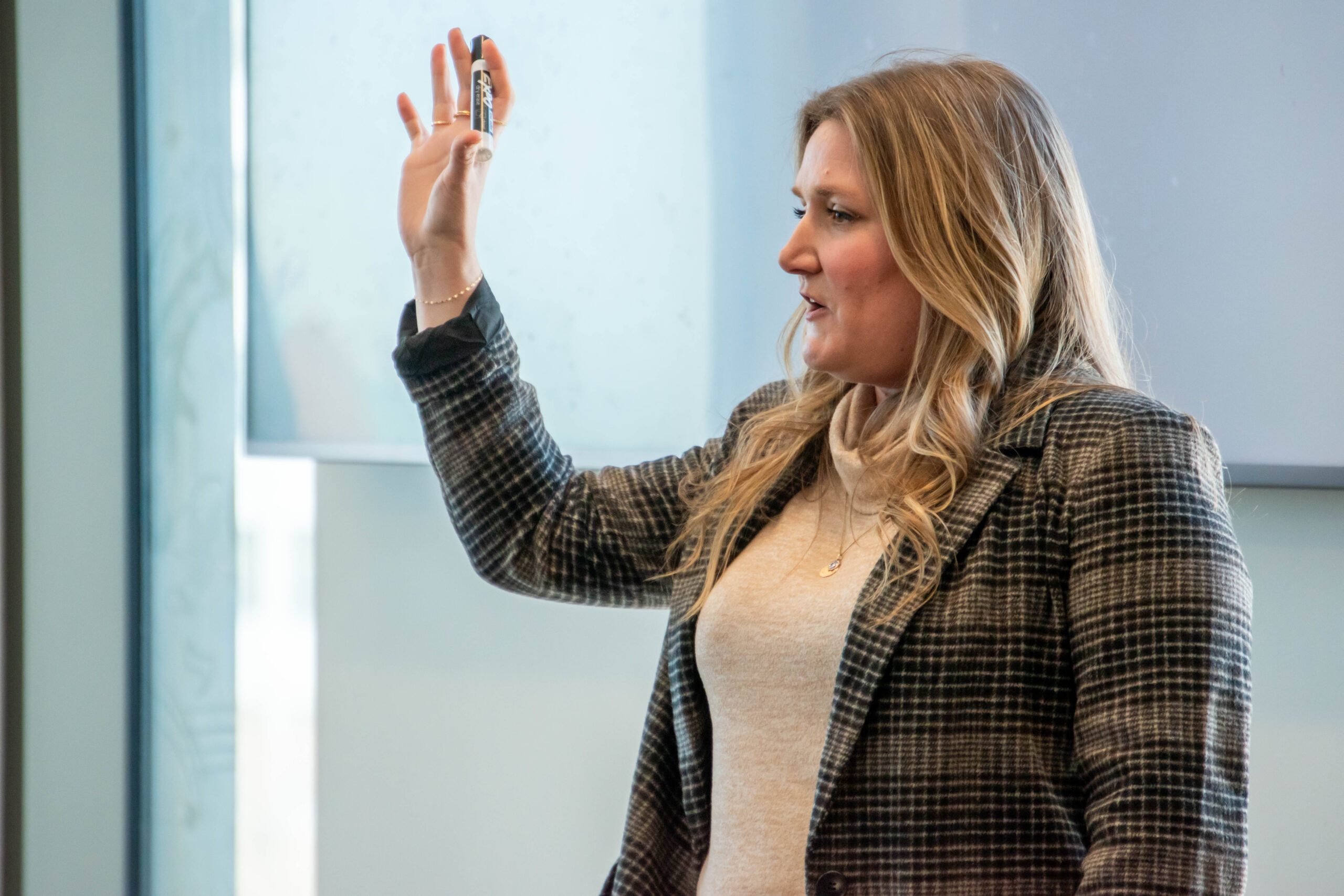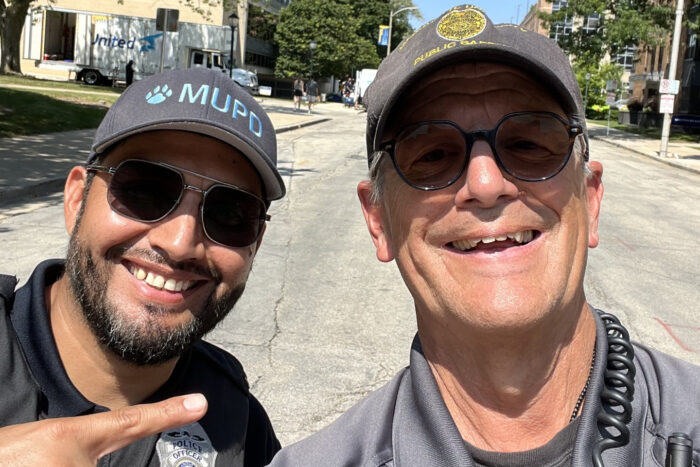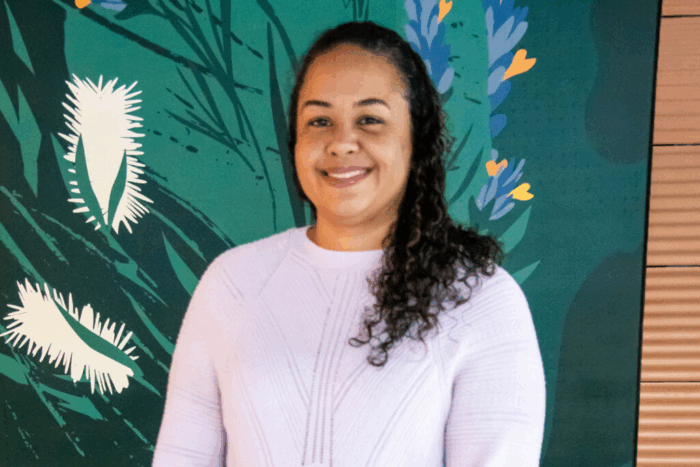When COVID-19 forced classes to go virtual, most saw it as an obstacle.
Dr. Jess Ogilvie saw it as an opportunity to create new training exercises for students.
“With our industry partners, I conducted research into verbal and nonverbal language cues during video sales calls,” says Ogilvie, the director of Marquette Business’ Center for Professional Selling. “When the pandemic hit, we switched over to video meetings, and that meant our students had to shift their understanding of what it meant to communicate successfully in that medium. Learning to communicate messages of value across every medium is why the professional selling curriculum includes in-person, virtual and team-based professional experiences.”
As the head of the only accredited sales center at a Jesuit university, Ogilvie’s research has largely focused on consultative selling, the idea that sales professionals act as partners to their clients in a continuing relationship. The research into communication over video calls follows Ogilvie’s recipe for success: uncover new knowledge about how to better serve customers, then design ways for students to apply that knowledge.
“I am almost to the point of being annoying in the number of times when I point out something and I say, ‘That’s sales,’” Ogilvie says. “Sales is everywhere. If I can’t establish shared relationships and goals with people, then the ability to build something goes away. I do everything I can to bring that principle into my class.”
Ogilvie has more than a few creative ways to do that, from having members of the sales club call prospective Marquette students and answer their questions to pitch competitions that benefit local charities. Members of the sales club are even on campus early to help move freshmen into their dorms during orientation. In all these scenarios, students practice the principles they learned in Ogilvie’s classes: listen to the customer, understand their problems and sell with the intention of helping instead of turning a profit.
Jon Silvers, a program alumnus and the center’s former industry relationship manager, administered many of these hands-on learning opportunities. He frequently added important details to these simulations, creating high-fidelity buyer profiles for fake customers that nonetheless added an important element of realism to the students’ activities.
“We have students who leave with an understanding of who they are and how they are a unique contributor in this world.”
Dr. Jessica Ogilvie, Director of the Center for Professional Selling
“It’s so important to put yourself in the shoes of the person you’re trying to sell to and understand what’s most important to them,” Silvers says.
Many in the technical selling industry hold Ogilvie in high regard as an authority on consultative sales. She recently co-authored new editions of Sales Force Management and Contemporary Selling, two well-known sales textbooks. She has also won an Excellence in Research Award from the American Marketing Association’s sales special interest group.
Because Marquette’s sales center incorporates Ogilvie’s insights into the curriculum, its students are highly sought-after by area companies. Silvers points to three recent graduates who earned technical sales roles with center partner Omron Automation despite not having an engineering background. They did, however, have something else that companies value: a purpose-driven attitude about their craft.
“A lot of people who are in sales just fall into the career. Our students get hours of practice early on in their careers in ways that other candidates don’t. That’s a huge advantage,” Silvers says.
“It’s always a challenge to hire people and find the right fit so that they’ll stay at your company long term,” Ogilvie says. “We have students who leave with an understanding of who they are and how they are a unique contributor in this world. That puts them in a place where they know what they want at graduation, which allows them to stay in those roles and be better from the start.”
The opportunities for those who hold a sales degree are plentiful, from automation sales in manufacturing firms to financial products in fintech companies to insurance. However, many of these products are complex and require ongoing relationships to effectively implement, which is why the sales industry has consistently drifted toward consultative sales.
Ogilvie says it’s just as important to define what she doesn’t want her sales center to be known for: transactional selling. Not only are there ethical problems with the one-and-done, profit-over-relationship techniques of the past, but also customers can now purchase a much wider range of products for themselves without an intermediary. No longer do people have to, for instance, go to the dealership to purchase a car in the age of online car-buying.
There is still a need for sales professionals, but in a different role than they’ve served in the past.
“The stronger and more genuine we can make relationships between individuals, the more value we can create together. You need to tell clients that you’re there to serve, and if you serve in the right ways, that creates success for everyone,” Ogilvie says.
By focusing on care for the client, Ogilvie and her students are putting Marquette on the forefront of sales education.



